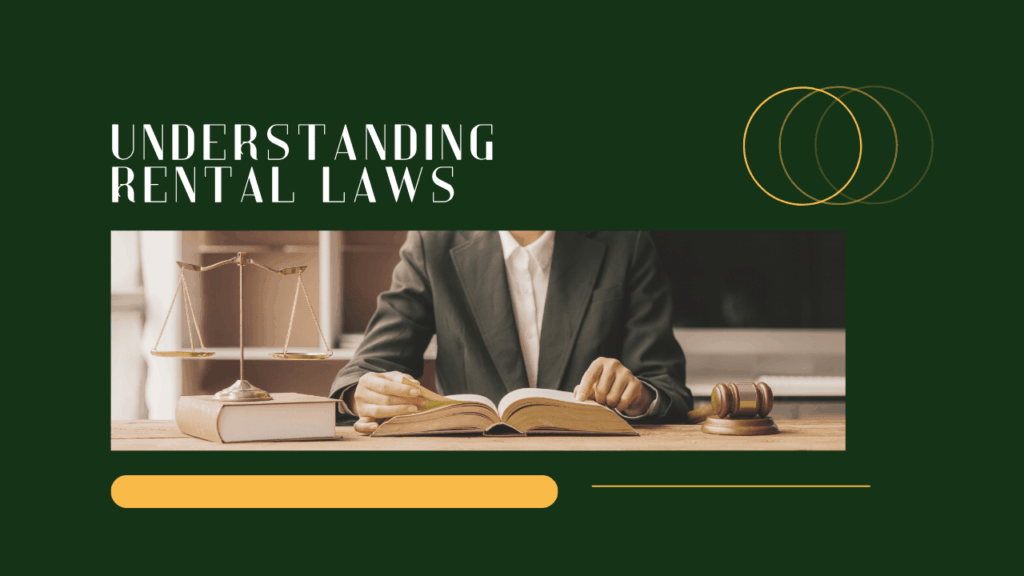
Laws are always changing, especially when we’re talking about rental laws.
That can feel pretty frustrating, especially if you’re a landlord or a rental property owner who is trying to keep up and stay in compliance.
As property management experts in Colorado, it’s our job to stay up to date on all the existing and pending legislation, and to keep the owners we work with in full compliance.
Let’s talk about some of the newest and most important laws in the Colorado landlord and tenant space right now. We have all of the information and insights you need to understand them, so don’t hesitate to get in touch with us if anything feels particularly confusing.
Just Cause Eviction Protections in Colorado
Thanks to HB24-1098, landlords must now have “cause” to evict a tenant or even to decline a lease renewal. You can no longer simply let the lease term end and expect the tenant to leave. Unless they provide notice to vacate, you’re going to have to sign a lease renewal with them or provide a legally justifiable reason why you won’t be doing that. In accordance with just cause eviction laws, landlords can’t simply evict or refuse to renew a lease without a valid reason, especially for tenants who have lived in the property for more one year or more.
So let’s unpack what this means to Colorado landlords.
The just causes for eviction are as follows:
- Nonpayment of rent
- Lease violations that were not corrected after notice
- Major property renovations or removal from the rental market
- Owner or immediate family moving in
- Planned demolition or conversion of the premises
- Substantial repairs or renovations to the premises
This is not a comprehensive list, of course, but it is a reflection of the most common reasons that a landlord might evict a tenant.
At the end of your lease term, you’ll be required to offer the existing tenants a lease renewal, unless you can provide a just reason for them not to be renewed.
Rental Increase Notice Periods
There’s no rent control in Colorado on a state level, and the local cities are prohibited from implementing their own rent stabilization laws. That’s good news for landlords; it means you can raise the rent as much as the market will allow when it’s time for the lease to renew.
There are still legal limits on how often you raise the rent and how much notice you provide to your tenants, however.
- When it comes to increases, you can only raise the rent once in a 12-month period of continuous tenant occupancy.
- You’ll have to give your tenant at least 60 days of notice before the rent increases.
It’s important that these things are reflected in your lease agreement. The rent will have to stay the same throughout the term of the lease. As the lease renews, you can raise the rent, but make sure you’re paying attention to that 60-day notice requirement. If the lease renews and the higher rent goes into effect on May 1, you’ll want to send the notice (and the renewal offer) to your tenants before March 1.
Late Fee Laws in Colorado
Let’s talk about late fees because the laws around them can be confusing and we’ve run into landlords and rental property owners who are not even aware that there’s a cap on what they can charge. That’s just asking for a legal entanglement you don’t need.
In Colorado, you’re legally permitted to charge a late fee that is either $50 or 5 percent of the monthly rent – whichever is greater. The threshold, mathematically, is a $1,000 rental value. If you’re charging less than $1,000 per month, you’ll want to charge the $50 late fee. If you’re charging more than $1,000 per month, you’ll earn more in late fees by charging the 5 percent.
Late fees can have a big impact on deterring tenants from paying rent late. Make sure you write those late fees into your rent collection policy, and always enforce them consistently.
Here’s another part of the late fee laws in Colorado: you have to wait seven days to impose that late fee.
This is a mandatory seven-day grace period, and it means that even if rent is due on the first, as it usually is, the tenants have seven days to get that rent in before you can legally charge a late fee. You cannot charge any interest on late fees, and you cannot evict a tenant because the late fees have not been paid. When rent for the next month comes in, you cannot apply that rent to the late fees that may be due. They are separate from rental payments.
Colorado Security Deposit Laws
The limit to what you can charge in a security deposit changed in August of 2023, and by now you should be fully up to speed with the new law.
Colorado landlords are limited to charging the equivalent of two months’ rent as a security deposit.
Landlords must return the security deposit to the tenant within 30 days after the tenant vacates the property, or up to 60 days if the lease agreement specifies a longer timeframe. Does your lease give you 60 days? Make sure it does, otherwise get that deposit back within the 30-day timeframe.
One of the most common legal pitfalls we see rental property owners trip over is understanding what they can deduct for. If the tenant leaves owing rent, you can keep the security deposit to cover that. You can also deduct from the deposit for damage, but not for wear and tear.
So, what’s the difference?
Well, that’s the problem. Everyone seems to have a different definition of what constitutes damage from tenants and what would qualify as normal wear and tear. This is why we stress the importance of move-in and move-out condition reports.
The courts see “Normal wear and tear” as deterioration that occurs from the intended use of the rental unit, without negligence, carelessness, accident, or abuse by the tenant or their guests. Damage would be caused by abuse, neglect, or misuse. A hole in the wall from where a television was mounted, for example, or a toilet that doesn’t flush because a child’s toys are backing it up would be damage. Those scuff marks on the wall from where furniture was resting? Not damage.
You also need to know that the landlord has the burden of proof when it comes to property damage and security deposit deductions.
When you do deduct, it’s legally required that you provide a written statement detailing any deductions from the security deposit within 30 days (or up to 60 days if the lease allows).
Pets and Rental Properties in Colorado
Let’s talk about pet deposits and pet fees.
House Bill 23-1068, signed into law on June 7, 2023, caps pet security deposits at $300 and sets a limit on non-refundable pet fees at $35 per month or 1.5 percent of the monthly rent, whichever is higher.
This is notable because if you charge the $300 deposit, it has to be refundable. Previously, you could charge a non-refundable pet fee, but now it’s limited to that monthly fee if you want it to be non-refundable, or the $300 deposit if you’re willing to refund the money that isn’t needed to pay for pet damage.
The recent legislation also addresses dog breeds and insurance. Under the new laws, insurance companies are not permitted to discriminate against what they perceive to be dangerous dog breeds. This does not mean you’re required to accept those dog breeds into your home, but it does give you some protection if your insurance company tries to deny, cancel, or increase the cost of your insurance policy based on the dog breeds you allow in your rental property.
Insurance providers do, however, retain the right to make adjustments if a particular dog has been identified as dangerous through documented incidents.
Accommodating Colorado Tenants with Disabilities
 Under current Colorado laws, it is unlawful to discriminate against a tenant who has a disability. There are both state and federal protections in place.
Under current Colorado laws, it is unlawful to discriminate against a tenant who has a disability. There are both state and federal protections in place.
You must allow a renter with a disability to make reasonable modifications to the property if the modifications are necessary to afford a tenant full enjoyment of the premises. Previously, these modifications and accommodations would be permitted with the understanding that the tenant would pay for whatever work needed to be done.
The new law, however, says that a landlord cannot require that a modification be at the expense of a tenant with a disability. You cannot allow the modification only if the tenant pays for it. Essentially, if a tenant with a disability identifies a needed accommodation in order to live in your property, you’ll have to pay for that modification.
It’s still on the tenant to prove that the accommodation is “reasonable,” but this is not necessarily a legal battle you want to engage in.
These are just a few of the most important laws that you need to know if you’re renting out property in Colorado. For some customized advice on how to remain in compliance, please contact us at Muldoon Associates.
